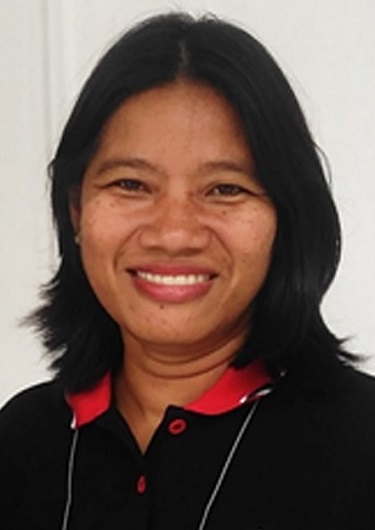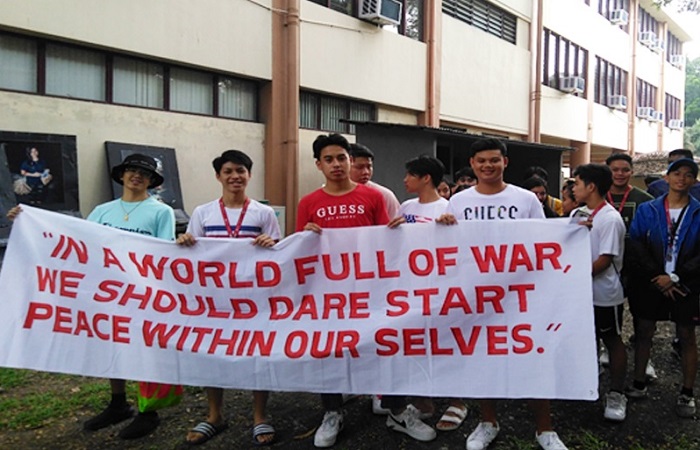Promoting a Peaceful Campus Community
 Silliman University, with its diverse student body, is a natural setting for promoting respect, trust, fellowship, and collaboration among different faith groups. Alma Ruiz, an assistant professor of religion and peace studies at Silliman’s Divinity School, views these efforts as an expression of the university’s commitment to the Christian faith. “We promote a peaceful community where everyone is free from prejudices and intolerance,” she said. “Religious education is experiential learning – so we encourage students to speak for their faith, as well as to visit religious places outside of their own, observe practices and rituals, and come back together and reflect and share their experiences.”
Silliman University, with its diverse student body, is a natural setting for promoting respect, trust, fellowship, and collaboration among different faith groups. Alma Ruiz, an assistant professor of religion and peace studies at Silliman’s Divinity School, views these efforts as an expression of the university’s commitment to the Christian faith. “We promote a peaceful community where everyone is free from prejudices and intolerance,” she said. “Religious education is experiential learning – so we encourage students to speak for their faith, as well as to visit religious places outside of their own, observe practices and rituals, and come back together and reflect and share their experiences.”
Now, through the United Board Faculty Scholarship Program, Ms. Ruiz is deepening her understanding of the sources of conflict and the means to resolve them as she pursues a PhD in peace studies at Payap University in Thailand. The program includes study of social theory, philosophy, and world religions as a foundation for fieldwork or research on conflicts, trouble spots, and methodologies for the work of transforming conflict into peace. Ms. Ruiz already sees how, over time, the field of peace studies can transform lives: “If we give greater attention to peace studies, I believe that it will help individuals develop peace-related values; gain knowledge and skills to handle conflicts, even life’s personal conflicts; and affect positive change in themselves and in the workplace, wherever they may be.”

Greater attention to peace studies can help individuals develop peace-related values, Ms. Ruiz believes.
Ms. Ruiz began her PhD program during the pandemic, so she has been participating in courses virtually, from her home in the Philippines. Still, she is impressed with the ways in which faculty and students have reached out beyond the virtual classroom to create an inclusive and welcoming environment. “Teachers keep in touch with us through emails and other online media platforms, and with my fellow PhD students, we exchange ideas and support each other by sharing supplemental reading resources,” she said. “Even the students from higher levels, whom we haven’t even met face to face, are giving us some words of encouragement to go forward, and in case we need help, they are very willing to help us, the beginners.”
The Payap program’s blend of academic study, thoughtful exchange, and collegial support is an example of how a university can nurture agents for peace and understanding. It also reflects Ms. Ruiz’s approach to helping different faith groups find common ground. “Interfaith dialogue is not just words or talk – it includes human interactions and relationships,” Ms. Ruiz believes, including the day-to-day interactions and relationships found on a university campus.
